Home Tags Posts tagged with "China"
China
Typhoon Fitow hit eastern China killing at least five people, with four others missing, local media report.
The powerful storm hit China’s eastern coast early on Monday, with winds of up to 151km/h.
The cyclone flattened houses, flooded villages and farms, and affected more than 4.5 million people, officials said.
Typhoon Fitow has caused economic losses of more than 21 billion yuan ($3.4 billion), officials in Fujian and Zhejiang provinces said.
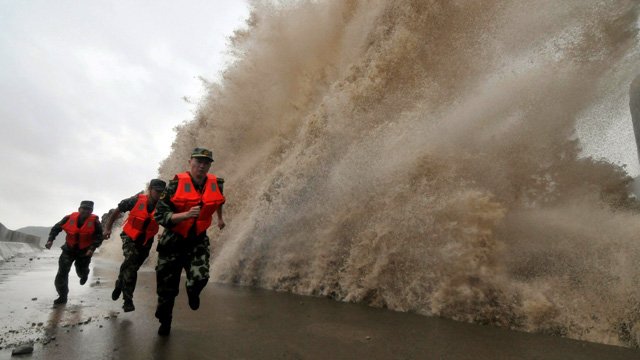
Typhoon Fitow hit eastern China killing at least five people
Two people died in Wenzhou, in Zhejiang province, state-run news agency Xinhua reported.
Three people in Ruian, also in Zhejiang, died from electric shocks, the agency added.
Rescue operations were underway, with footage on state television showing stranded residents being picked up by speed boats.
State media described shrimp farms and seaweed farms being damaged by the storm and powerful winds.
“We have basically lost everything this year,” a seaweed farmer told reporters.
Typhoon Fitow – named after a flower – made landfall at 01:15 local time on Monday in the city of Fuding, Chinese meteorologists said.
It triggered the evacuation of hundreds of thousands in Zhejiang and Fujian, and caused transport chaos as train, coach and flight services were cancelled.
Typhoon Fitow came just weeks after Typhoon Usagi killed at least 25 people in southern Guangdong province.
[youtube yt6UFImAkLs]
Chinese Vice Finance Minister Zhu Guangyao has warned that the “clock is ticking” to avoid a US default that could hurt China’s interests and the global economy.
China, the US’s largest creditor, is “naturally concerned about developments in the US fiscal cliff”, Zhu Guangyao said.
Washington must agree a deal to raise its borrowing limit by October 17, or risk not being able to pay its bills.
Zhu Guangyao asked that “the US earnestly take steps to resolve” the issue.
US Treasury Secretary Jacob Lew has said that unless Congress agrees an increase in the debt ceiling by October 17, Washington will be left with about $30 billion in cash to meet its obligations – about half the $60 billion-a-day needed.

China, the US’s largest creditor, is naturally concerned about developments in the US fiscal cliff
For many governments and investors the approaching deadlock over the debt ceiling is far more critical than the current impasse over the federal shutdown caused by Congress’s failure to agree a new budget.
On Sunday Republican House Speaker John Boehner reiterated that Republican lawmakers would not agree to raise the debt ceiling unless it included measures to rein in public spending.
Zhu Guangyao said that China and the US are “inseparable”. Beijing is a huge investor in US Treasury bonds.
“The executive branch of the US government has to take decisive and credible steps to avoid a default on its Treasury bonds,” he said.
“It is important for the US economy as well as the global economy.”
“We hope the United States fully understands the lessons of history,” Zhu Guangyao said, referring to a similar deadlock in 2011 that led to a downgrade of the US “AAA” credit rating.
That deadlock ended with an eleventh-hour agreement.
[youtube fun-FYTdK9U]
Typhoon Fitow has hit eastern China after triggering the evacuation of hundreds of thousands of people.
With winds up to 93mph, the storm landed in Fujian province early on Monday, bringing heavy rains and causing widespread power cuts.
At least two people have been killed by the typhoon, state-run news agency Xinhua reported.
The authorities earlier issued the highest alert – red – for the area.
Some homes are said to have collapsed in neighboring Zhejiang province and two port workers are missing.
Typhoon Fitow – named after a flower – made landfall at 01:15 local time on Monday in the city of Fuding, Chinese meteorologists said.
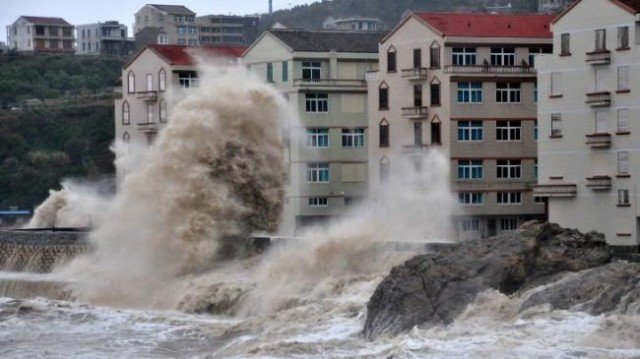
Typhoon Fitow has hit eastern China after triggering the evacuation of hundreds of thousands of people
They warned that some areas in Fujian and Zhejiang could see more than 8 inches of rain in the coming hours.
In Fujian, 177,000 people were evacuated before the storm hit the coast, Xinhua said, while in Zhejiang, some 574,000 people had to leave their homes.
Some 35,000 boats in Zhejiang and 30,000 in Fujian were ordered to return to harbor for shelter.
Coastal facilities such as seaside bathing centres were also closed, state media reported.
“We must not leave anybody in danger,” Zhejiang Governor Li Qiang was quoted as saying.
The typhoon also caused suspension of bullet trains and coach services in several cities in the area.
Dozens of flights to and from Wenzhou airport in Zhejiang were cancelled.
The storm is now moving north-west and is expected to weaken quickly.
Typhoon Fitow is the 23rd typhoon to hit China this year, Xinhua reported.
It comes just weeks after Typhoon Usagi killed at least 25 people in southern Guangdong province.
[youtube waZ0AC0EIkk]
A giant saltwater swimming pool, known as China’s “Dead Sea” is located in Daying county, Sichuan province, and is a riot of color as the masses grab their rubber rings and descend upon it.
The indoor water park is said to be the largest in China and covers 30,000 square meters.

China’s “Dead Sea” is located in Daying county, Sichuan province, and is a riot of color as the masses grab their rubber rings and descend upon it
The pool can accommodate up to 10,000 visitors at once and over a million people have visited the resort this summer, claim the operators.
The man-made “sea” was created using rich salt resources in the region and contains 43 different minerals and microelements.
Due to its salinity of over 22%, swimmers float freely on the surface – much as they do in the Dead Sea in the Middle East.
The resort also offers a Spa centre, a golf course and even on-site cheerleaders.
[youtube pH7Wwl7oyAc]
British pharmaceutical giant GlaxoSmithKline (GSK) made “illegal” transfers, say Chinese police as they released details of an investigation into bribery allegations.
Four senior Chinese executives from GSK have been held, said Gao Feng, head of the economic crimes investigation unit.
Gao Feng said GSK had transferred as much as 3 billion yuan ($489 million) to travel agencies and consultancies since 2007.
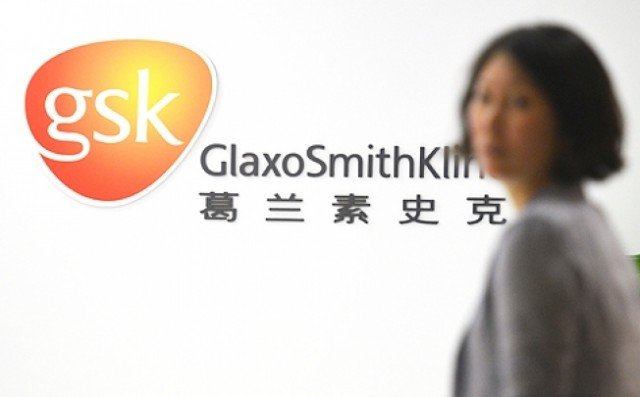
Chinese police said GSK had transferred as much as $489 million to travel agencies and consultancies since 2007
GSK has said it has not found any evidence of corruption.
However, the company said in a statement last week that it was co-operating with authorities.
On July 11, the Ministry of Public Security said GSK executives had confessed to bribery and tax violations. Authorities said they suspect GSK of offering bribes to officials and doctors to try to boost sales in China.
On Monday, Gao Feng did not go into how much of the money was spent allegedly bribing officials and doctors.
He did, however, say that the probe had found that GSK was mainly responsible for the bribes which included cases of s**ual bribery.
“We have sufficient reason to suspect that these transfers were conducted illegally,” Gao Feng said.
“You could say the travel agencies and GSK were criminal partners.”
[youtube 495oig2-BzU]
China’s economic growth slowed in Q2 2013, the second straight quarter of weaker expansion.
The world’s second biggest economy grew by 7.5% in the April to June period compared to the previous year, down from 7.7% in the January to March period, data showed.
The figures were in line with analyst expectations.
After decades of blistering growth in China, analysts say authorities now seem ready to accept a slower pace of expansion.
The figures showed that weak trade data and actions by authorities to reign in bank lending contributed to the slower growth.
“As of now, China’s gross domestic product has been staying under 8% for five straight quarters, a clear sign of distress,” said economist Ren Xianfang from IHS Global Insight.
“The rather sharp growth deceleration and the recent financial market turmoil indicate that risks have been building on both the financial and real goods sector,” she added.
The government has set a target of 7.5% growth for the whole of 2013, which would mark the lowest rate of expansion in more than two decades.
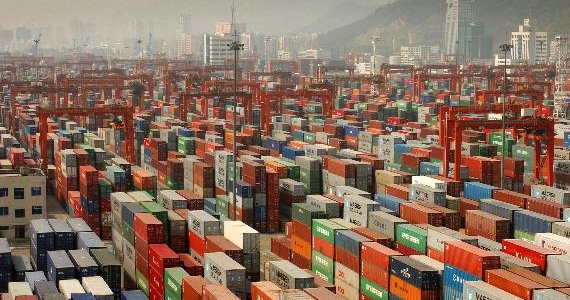
China’s economic growth slowed in Q2 2013, the second straight quarter of weaker expansion
China has been a major driver of the global economy and many countries have gained because of the demand from Chinese companies, including the mining sector in Australia.
However, analysts questioned whether the 7.5% target would be achieved without some stimulus measures from the government.
“We will see some targeted measures to stimulate growth,” said Credit Agricole CIB economist Dariusz Kowalczyk.
“They have to do something. Otherwise they will miss their target. And they cannot afford that, because this is their first year in power.”
A spokesperson for the National Bureau of Statistics said: “Major indicators are within our targeted range but we face a complex situation.”
China’s leaders have repeatedly said that the long-term goal is to rebalance the economy away from an over-reliance on exports and investment, and spur consumer spending instead.
“Some measures, including the intensified property tightening campaign, new rules to curb misuse of public funds and the exit some previous stimulus policies, will inevitably have some impact on growth in the short term, but they will benefit our economy in the long run,” said Sheng Laiyun from the bureau of statistics at a press conference.
In 2012 China expanded at a rate of 7.8%, its worst annual performance in 13 years.
[youtube 8OfXfl3Evek]
According to the United Nations, India looks set to overtake China as the world’s most populous country from 2028.
At that point, India and China will number 1.45 billion people each. Subsequently India’s population will continue to grow until the middle of the century, while China’s slowly declines.
The UN also estimates that the current global population of 7.2 billion will reach 9.6 billion by 2050.
That is a faster rate of growth than previously estimated.
The population growth will be mainly in developing countries, particularly in Africa, the UN says.
The world’s 49 least developed countries are projected to double in size from around 900 million people in 2013 to 1.8 billion in 2050, whereas the population of developed regions will remain largely unchanged.
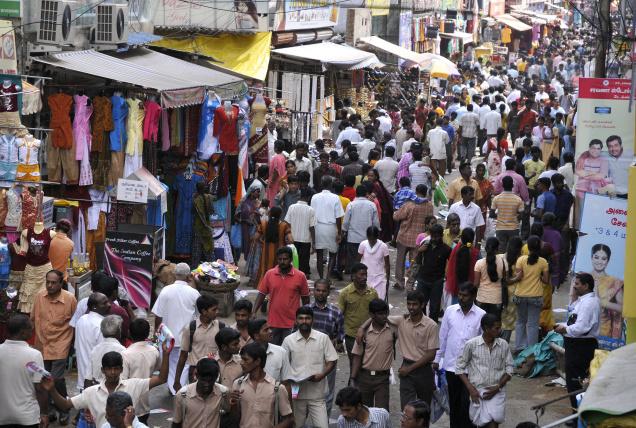
India looks set to overtake China as the world’s most populous country from 2028
The UN said the reason for the increase in its projection for total global population in 2050 is largely new information on fertility levels in certain high birth rate countries.
Large developing countries, such as China, India and Brazil, have seen a rapid fall in the average number of children per woman, but in other nations, such as Nigeria, Niger, Ethiopia and Uganda, fertility levels remain high.
Nigeria’s population is expected to exceed that of the United States by the middle of the century, and could start to rival China’s by 2100.
China’s population is expected to start decreasing after 2030.
“Although population growth has slowed for the world as a whole, this report reminds us that some developing countries, especially in Africa, are still growing rapidly,” commented Wu Hongbo, the UN’s Under-Secretary-General for Economic and Social Affairs.
The UN publishes an assessment of past, current and future population trends every two years, in a recurrent series known as the World Population Prospects.
Researchers have used data for 233 countries and areas to produce Friday’s report.
[youtube qJ8RJ6A8dp4]
France’s President Francois Hollande has made an embarrassing slip of the tongue, confusing Japan and China, as he spoke in French at a news conference in Tokyo.
Referring to the Algerian hostage crisis in January, in which 10 Japanese people were killed, he said he had expressed “the condolences of the French people to the Chinese people”.

Francois Hollande has made an embarrassing slip of the tongue, confusing Japan and China, as he spoke in French at a news conference in Tokyo
Francois Hollande did not correct his mistake.
Relations between Japan and China are often frosty, colored by history and by more recent territorial disputes.
Polls in both countries suggest a mutual distrust and neither side’s nationals like to be confused with the other.
The interpreter did make a correction, in her simultaneous translation.
But at least one Japanese journalist picked up on the error.
Francois Hollande is on a three-day state visit to Japan, the first by a French president in 17 years.
[youtube t-Ig9p8pd28]
At least 112 people have been killed in a fire at a poultry processing plant in China, according to officials.
The fire broke out at a slaughterhouse in Dehui in Jilin province early on Monday, according to state-run Xinhua news agency.
Rescue workers were at the scene and the fire had not yet been put out, the report said, citing local sources.
There are reports that the fire took hold following three explosions in an electrical system.
About 100 workers had managed to escape from the plant, Xinhua said, adding that the “complicated interior structure” of the building and narrow exits had made rescue work more difficult.
The number of workers trapped inside the plant had yet to be confirmed, the agency added. The cause of the fire was under investigation, it said.

At least 112 people have been killed in a fire at a poultry processing plant in China
Those injured were sent to hospital, Xinhua says. The severity of their injuries however remains unclear.
Workers interviewed by state broadcaster CCTV said the fire broke out during a shift change and may have started in a locker room.
The company that owns the farm, a big producer of processed chicken, employs more than 1,000 people, reports say.
Photographs posted on Chinese news websites showed thick smoke coming from the large cement and corrugated iron sheds, with fire trucks still at the scene.
Workplace safety standards can often be poor in China, with fatal accidents regularly reported at large factories and mines.
The plant is located around 500 miles north-east of Beijing.
[youtube UuCFo12d-R0]
It was a tough week for Honey Boo Boo as her father, Mike “Sugar Bear” Thompson, was recently hospitalized and the family’s pet dog, China, was struck and killed by a vehicle.
Sugar Bear, 40, collapsed late last week after getting dizzy and was taken to a hospital.
“Mama” June Shannon, 33, said in a Facebook update on May 25 that doctors were “running a lot of tests on his brain”, without any conclusive results.
The posting included the hashtag “#prayforsugarbear” and warned that it could be a “very serious” medical condition.
On Monday, June Shannon posted a message on Facebook saying that China, the family’s pet Chihuahua, was found by older daughter Lauryn, known as “Pumpkin”, and a security staffer when they went to retrieve clothes for the hospitalized Sugar Bear.
China “had been recently hit and left to die” and was suffering spasms when she was found, Mama June wrote.
The family rescued the friendly dog six years on Craigslist.
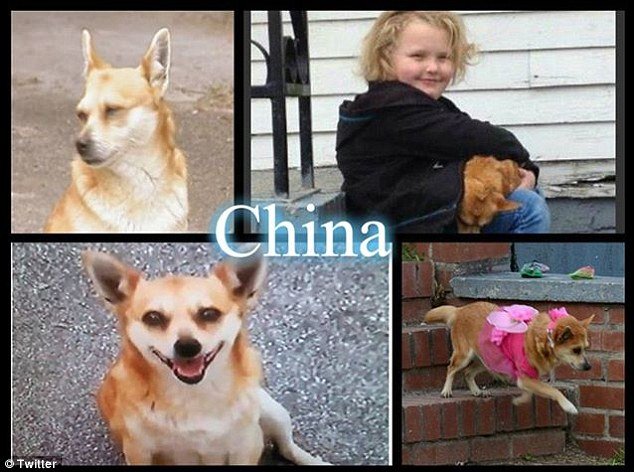
Honey Boo Boo and her late dog China
“She will b greatly missed alana loved her a lot as all us did,” June Shannon wrote.
In better news, Sugar Bear was released from the hospital and returned home after doctors determined what made him pass out.
Sugar Bear has been ordered to relax and will remain home, June Shannon said in a Facebook posting on Thursday.
Back in September, Sugar Bear had emergency surgery to treat an infection following a mud boggin’ accident.
He also had a quad bike accident last year and paramedics were called when he fell ill during the family’s Christmas toy drive after suffering from high blood pressure.
Sugar Bear was released from a week-long hospital stay in early March after suffering chest and stomach pains and was diagnosed pancreatitis.
Here Comes Honey Boo Boo is the popular reality television programme on TLC that chronicles the life of 7-year-old child beauty pageant Alana Thompson and her family in rural McIntyre, Georgia.
Australian Foreign Minister Bob Carr says a report alleging Chinese hackers stole plans for Australia’s new intelligence hub will not hit ties with Beijing.
On Monday the Australian Broadcasting Corporation (ABC) reported blueprints setting out the building’s cable layouts and security systems had been illegally accessed by a server in China.
Bob Carr did not comment directly on the claims.
But he said the government was “very alive” to cyber security threats.
“I won’t comment on whether the Chinese have done what is being alleged or not,” he said.
“I won’t comment on matters of intelligence and security for the obvious reason: we don’t want to share with the world and potential aggressors what we know about what they might be doing, and how they might be doing it.”
Bob Carr said the ABC report had “no implications” for a strategic partnership.
“We have enormous areas of co-operation with China,” he said.
The claims were made in a report on Chinese cyber-espionage by ABC’s Four Corners investigative programme on Monday night.
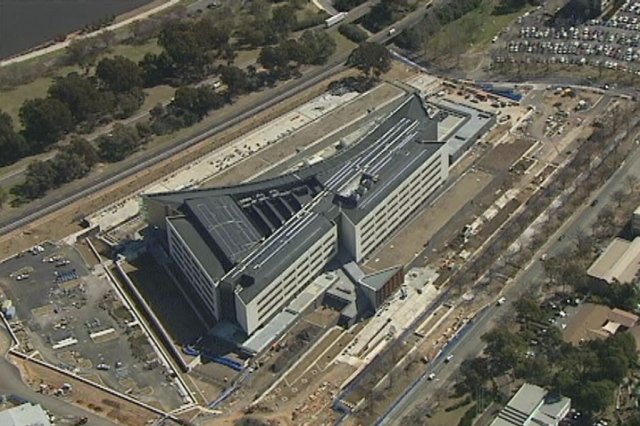
Chinese hackers stole plans for Australia’s new intelligence hub
The programme alleged that blueprints to the new intelligence headquarters in Canberra – due to be finished last year but delayed – were stolen in a cyber attack on a contractor that was traced to a server in China.
The plans detailed communications cabling and server locations, floor plans and security systems, the programme alleged.
It quoted Professor Des Ball, an expert on cyber security from the Australian National University, as saying access to such details would enable an outside party to identify rooms used for sensitive activities and work out how to monitor them.
The programme also alleged that the Prime Minster’s Office, the Defence Ministry and the Department of Foreign Affairs had been breached in hacking operations.
Four Corners did not identify the source of its information.
Chinese Foreign Ministry spokesman Hong Lei rejected the claims, saying “groundless” accusations would not solve the problem of cyber hacking.
“Since it is technically untraceable, it is very difficult to find the source and identify the hacker,” he said.
“Therefore we have no idea what is the evidence for their report in which they make the claim with such certainty.”
Earlier this year, hackers from China – which is now Australia’s biggest trading partner – were thought to be behind an attack on the Reserve Bank of Australia, the Australian Financial Review reported.
The issue of cyber espionage looks set to be high on the agenda when the US and Chinese presidents hold their first summit in California next month.
Earlier this month, the Pentagon for the first time directly accused the Chinese government and military of targeting US government computers as part of a cyber espionage campaign aimed at collecting intelligence on US diplomatic, economic and defence sectors.
China called the report “groundless”, saying it represented “US distrust”.
[youtube 6pg07OomR5Q]
[youtube pvorV3dJsF0]
Kim Jong-un has sent Choe Ryong-hae as special envoy to Beijing, North Korean state media has announced, amid cooling relations between the two neighbors.
Choe Ryong-hae, a top military official, flew to the Chinese capital on Wednesday, KCNA said.
The brief dispatch gave no details of the visit, which comes amid an apparent toughening of Beijing’s stance in the wake of Pyongyang’s third nuclear test.
Chinese media said Choe Ryong-hae met Wang Jiarui, a top foreign affairs official.
The visit – the duration of which remains unknown – follows weeks of high tension on the Korean peninsula.
China is North Korea’s biggest trading partner and closest ally. It has traditionally sought to maintain stability in North Korea, avoiding any crisis that could trigger the fall of the regime and propel a flow of refugees across the border.
In recent weeks, following Pyongyang’s February 12 nuclear test and amid strident rhetoric from its leaders, China has expressed frustration with North Korea, with state media openly debating the benefits of close ties.
Beijing supported expanded UN sanctions against Pyongyang after its nuclear test and some of its banks have recently suspended trading with North Korea’s Foreign Trade Bank.
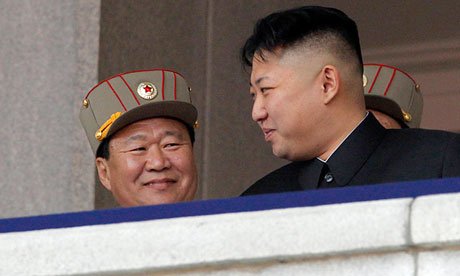
Kim Jong-un has sent Choe Ryong-hae as special envoy to Beijing
It is also under domestic pressure after unidentified North Koreans seized, and subsequently released two weeks later, a 16-strong Chinese crew who had been fishing in the Yellow Sea.
The KCNA report described Choe Ryong-hae as director of the General Political Bureau of the Korean People’s Army.
He has risen quickly under North Korea’s young leader – last year he was promoted to vice-marshal and given senior positions within the party’s key organizations.
Kim Jong-un inherited the North Korean leadership in December 2011 after the death of his father, Kim Jong-il. The late Kim Jong-il visited China in August 2011 and his brother-in-law, Jang Song-thaek, who is thought to be a key adviser of the younger Kim Jong-un, in August 2012.
Choe Ryong-hae is thought to be the most senior North Korean official to visit China since then.
He appears to be the first top-level envoy publicly dispatched by the North Korean leadership to the region since the recent tensions, which saw multiple threats of attacks from North Korea and a show by the US of high-profile military hardware in joint exercises with the South.
Japan, meanwhile, said on Wednesday it would be open to direct talks with North Korea if it would help resolve the issue of Japanese nationals kidnapped by the communist state in the 1970s and 1980s.
The comments, from Japan’s top government spokesman, followed a visit to Pyongyang by a special envoy of Japanese leader Shinzo Abe. South Korea and the US have criticized the visit as unhelpful and said they were not consulted.
In another development, a KCNA report named a hard-line general, Kim Kyok-sik, as North Korea’s army chief. Kim Kyok-sik was previously defense minister, a lower ranked position, until earlier this month.
Kim Kyok-sik was said to be responsible for the shelling of South Korea’s border island Yeonpyeong in 2010, which killed four South Koreans.
[youtube 6G7kUF82dhY]
A powerful earthquake hit China’s south-western province of Sichuan killing at least 46 people and injuring at least 400, state TV reports.
The US Geological Survey (USGS) said the quake, which had a 6.6 magnitude, was centred 31 miles west of the town of Linqiong.
The tremor occurred at a depth of 7.4 miles.
There are fears the death toll could rise further.
An 8.0 magnitude quake in Sichuan in May 2008 killed nearly 90,000 people.
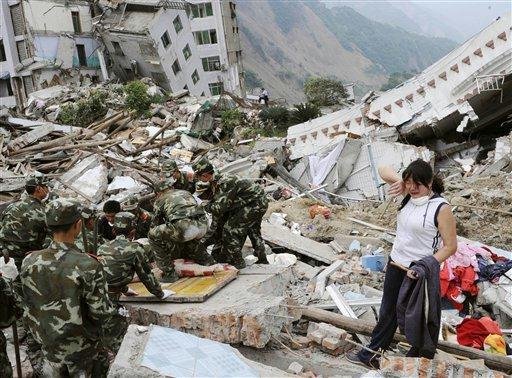
An 8.0 magnitude earthquake in Sichuan in May 2008 killed nearly 90,000 people
The latest quake – initially reported as a 7.0 magnitude, and then at 6.9 – struck at 08:02 local time, the USGS said.
The earthquake was felt 71 miles away in the provincial capital, Chengdu, according to China’s state news agency Xinhua.
People ran into the streets wrapped in blankets, according to photos posted online. Other pictures showed buildings that had collapsed.
A resident in Chengdu told Xinhua he had been on the 13th floor of a building when he felt the quake. The building shook for about 20 seconds and he saw tiles fall from nearby buildings.
Electrical and water supplies have reportedly been cut to the affected area.
Telephone lines are also believed to be down.
Xinhua said 2,000 soldiers had been dispatched to the area to help with rescue efforts.
The city of Ya’an, close to the epicentre, has a population of 1.5 million.
The USGS noted that “significant” casualties were likely and that “extensive damage is probable and disaster is likely widespread”.
“Past events with this alert level have required a national or international level response,” it added.
The 2008 disaster in Sichuan left 5 million people homeless.
[youtube 6NwJevJ6O3U]
[youtube HQ_oXWjm4Gc]
US Secretary of State John Kerry has hailed China for being “very serious” about a pledge to help resolve tensions over North Korea’s nuclear programme.
The US and China earlier said they were committed to the “denuclearization” of the Korean peninsula.
John Kerry said the two sides would hold further meetings “to bear down very quickly” on how to achieve that goal.
North Korea has recently threatened attacks against South Korea and the US, amid a flurry of bellicose statements.
Speculation has also built that the North was preparing a missile launch, following reports that it had moved at least two Musudan ballistic missiles to its east coast.
John Kerry has said any such launch would be a “huge mistake”.
After a day of meetings in Beijing with President Xi Jinping and other top Chinese officials on Saturday, he said both governments called on North Korea “to refrain from any provocative steps and that obviously refers to any future missile shoot”.
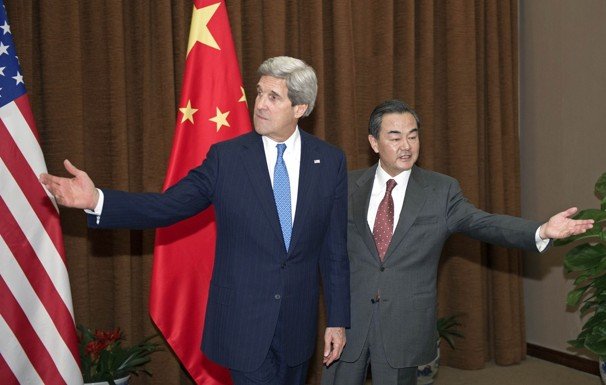
State John Kerry has hailed China for being “very serious” about a pledge to help resolve tensions over North Korea’s nuclear programme
John Kerry, who is on a four-day tour of Asia, continues to Japan on Sunday.
Following John Kerry’s meetings, China’s top diplomat Yang Jiechi said his country’s position was “clear cut”.
“China is firmly committed to upholding peace and stability and advancing the denuclearization process on the Korean peninsula,” he said, adding that the issue should be resolved “peacefully through dialogue”.
No specifics were given, though John Kerry said the two sides would hold “further discussions to bear down very quickly with great specificity on exactly how we will accomplish this goal”.
He later told reporters that the US Chairman of the Joint Chiefs of Staff, Martin Dempsey, would visit Beijing later this month accompanied by intelligence officials.
He said he wanted to ensure that the pledges made on Saturday were “not just rhetoric”, adding: “There is no question in my mind that China is very serious – very serious – about denuclearizing.”
China is North Korea’s only ally and major trading partner, but has grown increasingly frustrated with its growing belligerence.
However, persuading China to increase the pressure on North Korea will not be easy.
China is still North Korea’s lifeline, and Beijing is unlikely to cut vital supplies of food and fuel since it feels that may make the North even more desperate and unpredictable.
On Saturday John Kerry raised the prospect that if North Korea stopped its nuclear programme – “if the threat disappears” – then the US would no longer have “the same imperative… to have that kind of robust, forward-leaning posture”.
Since the UN imposed fresh sanctions on North Korea in February in response to its third nuclear test, Pyongyang has promised to restart a mothballed nuclear reactor and threatened a nuclear strike against the US mainland.
It has also shut an emergency military hotline to South Korea, and urged diplomatic staff to leave, saying it cannot guarantee their safety.
North Korea says it has also been angered by joint US-South Korean military exercises.
On Saturday, a commentary piece on Chinese state news agency Xinhua said Washington had itself “been fanning the flames” by sending military reinforcements to the region.
But during his trip, John Kerry has stressed that the US has tried to tone down its own statements, and cancelled some military exercises in an effort to defuse tension.
Though North Korea’s rhetoric has been more bellicose than usual, analysts say it fits a long-standing pattern, and may be intended to boost the popularity of Kim Jong-un, who came to power last year.
[youtube lF1kplg1Yn4]
Chinese authorities have reported the first case of H7N9 “bird flu” in Beijing after a 7-year-old girl has been hospitalized in the capital.
The girl, whose parents are poultry traders, developed a fever, sore throat and headache on Thursday. Her condition is said to be stable.
Two people in close contact with the child were quarantined for observation but have shown no symptoms so far.
The UN had recorded 28 cases and nine deaths in China as of Wednesday.

Chinese authorities have reported the first case of H7N9 bird flu in Beijing after a 7-year-old girl has been hospitalized in the capital
There are no reported cases outside the country, according to the World Health Organization (WHO).
China’s national disease control centre confirmed on Saturday that the girl take ill in Beijing had the H7N9 virus.
The first cases of the virus were reported in February, in eastern China.
According to the WHO, there is no evidence that the H7N9 virus is being transmitted between people, and most cases come from poultry.
International health experts have commended China on its transparency in reporting the spread of the virus, in sharp contrast to its handling of a Severe Acute Respiratory Syndrome (SARS) outbreak in 2003, when 8,096 people were infected worldwide and 744 died.
[youtube jal-oQAas0I]
The US has urged China to use all its leverage to help rein in North Korea’s “destabilizing” actions.
US Secretary of State John Kerry is in South Korea, where he is expected to call on China to evoke “a sense of urgency” in its talks with North Korea.
Pyongyang has ratcheted up tensions in the region, threatening nuclear strikes against South Korea and the US.
A leaked US intelligence report has said North Korea may now be capable of mounting nuclear warheads on a missile.
On Thursday, a US Congressman read out what he said was an unclassified section of a Defense Intelligence Agency study. He said it assessed “with moderate confidence” that North Korea could fire a nuclear-armed missile, though with “low reliability”.
North Korea has tested both nuclear weapons and missiles, but it had been thought it had not yet developed a device small enough to be a viable and deliverable weapon.
But the Pentagon later denied the report, with spokesman George Little saying it would be “inaccurate to suggest that the North Korean regime has fully tested, developed or demonstrated the kinds of nuclear capabilities referenced in the passage”.
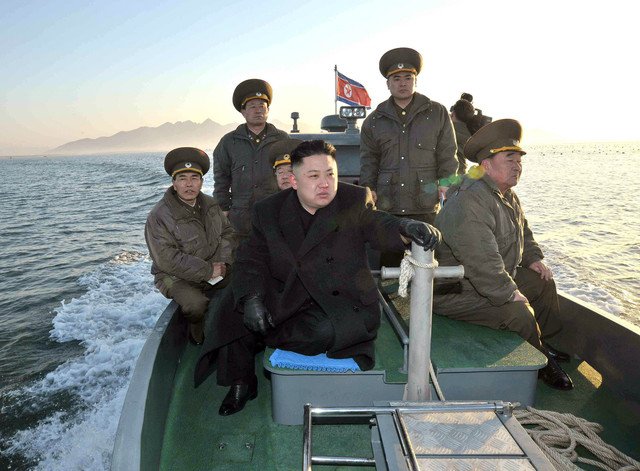
North Korea has increased its warlike rhetoric following fresh UN sanctions imposed after its third nuclear test in February
South Korea is currently on a high state of alert amid indications that North Korea is preparing for a missile test.
Pyongyang has moved two Musudan ballistic missiles to its east coast. Estimates of their range vary, but some suggest the missiles could travel 2,500 miles.
That would put US bases on Guam within range, although it is not believed that the Musudan has been tested before.
John Kerry is making his first trip to Asia since becoming secretary of state. He will spend time in Seoul and Tokyo as well as in Beijing, North Korea’s last remaining ally and its major trading partner.
A senior administration official told reporters on board John Kerry’s plane: “It is no secret that China has most leverage, most influence, with North Korea and I think fundamentally we would want them to use some of that leverage because otherwise it is very destabilizing and it threatens the whole region.”
The official added that, although Washington was not privy to conversations between China and North Korea, “we would want China to bring a sense of urgency, the need to stop this escalation, into that debate”.
“China has a huge stake in stability and the continued North Korean pursuit of a nuclear armed missile capability is the enemy of stability. That gives us and the Chinese a very powerful objective in common, namely denuclearization,” the official said.
President Barack Obama has urged Pyongyang to end its “belligerent approach… and to try to lower temperatures”.
But he warned that while he preferred to see tensions resolved through diplomatic means, “the United States will take all necessary steps to protect its people”.
China, meanwhile, has denied reports that it is deploying troops along the North Korean border.
A defense ministry official said Beijing was “paying close attention to the development of the current situation on the Korean Peninsula and has always been committed to safeguarding peace and stability in Northeast Asia,” the state Xinhua news agency reports.
North Korea has increased its warlike rhetoric following fresh UN sanctions imposed after its third nuclear test in February and joint military manoeuvres by the US and South Korea.
Pyongyang says it will restart a mothballed nuclear reactor, has shut an emergency military hotline to the South and has urged countries to withdraw diplomatic staff, saying it cannot now guarantee their safety.
However, in the past few days North Korea’s media appear to be in more of a holiday mood, due to the approach of Monday’s celebrations marking the birth of national founder Kim Il-sung – a potential launch date for a new missile test.
On Thursday, foreign ministers from the G8 group of nations condemned in the “strongest possible terms” North Korea’s nuclear weapons and ballistic missile programmes.
[youtube txbEGpUVzrQ]
Django Unchained, Quentin Tarantino’s Oscar-winning movie, has been cancelled in cinemas across China on its opening day due to “technical reasons”.
A suspension order by importer China Film Group Corporation was confirmed by cinema employees.
It has led to speculation Django Unchained had not met the censorship regulations required by Chinese cultural authorities.
Distributor Sony Pictures said Quentin Tarantino had agreed to “slight adjustments” to reduce the violence.

Django Unchained, Quentin Tarantino’s Oscar-winning movie, has been cancelled in cinemas across China on its opening day
Cinema manager Tian Zaixing said he could not recall any other imported film being halted on the opening day.
TianZaixing said the cinema had received a call at 10:00 local time to cancel the film.
“We had high expectations for this film’s box office,” he added.
“They didn’t tell us when the film would be shown again,” an official at a Shanghai cinema told Reuters.
Sony Pictures executive Zhang Miao said the changes to the film included “tuning the blood to a darker color” and “lowering the height of the splatter of blood” in an interview with China’s Southern Metropolis Daily.
Quentin Tarantino viewed the changes as “progress rather than a compromise” according to Zhang Miao.
Sony Pictures and China’s State Administration of Radio, Film, and Television (SARFT), which is responsible for movie censorship, have not commented on the cancellation.
“After watching it for about a minute, it stopped!” said microblogger Xue Yi Dao on the Twitter-like Sina Weibo website.
“Staff then came in and said SARFT…had called to say it had to be delayed!! Can someone tell me what’s happening!!” he added.
Django Unchained is Quentin Tarantino’s first film to be released in China, where cultural authorities restrict the number of foreign films in cinemas each year.
Chinese regulators often request changes to films to remove explicit scenes, violence and other topics deemed inappropriate for the audience in China – which is now the second-biggest movie market in the world.
Oscar-winning Skyfall, Cloud Atlas and the remake of Red Dawn, have all recently made changes to appease the regulators.
[youtube eUdM9vrCbow]
China is increasing efforts to contain the spread of a new strain of bird flu which has killed six people in the country.
The authorities in Shanghai, where four deaths were recorded, have closed three poultry markets and banned the import of all live birds into the city.
China has now identified 16 domestic cases of the H7N9 virus.
The World Health Organization (WHO) says there is no evidence yet that the virus is being transmitted between humans.
The human cases of H7N9 have all occurred in eastern China, in Shanghai and its neighboring provinces of Anhui and Zhejiang.

China is increasing efforts to contain the spread of a new strain of bird flu which has killed six people in the country
The latest death was a 64-year-old man who died in Zhejiang, the second death there, state media report. There was no sign of infection in anyone who had had close contact with him, said officials.
On Thursday, officials began the slaughter of at least 20,000 birds in Shanghai after the virus was detected in pigeons sold in Huhuai market.
The trading of live birds – how poultry is traditionally sold in China – has also been halted at a market in the Zhejiang city of Hangzhou, after the virus was detected in quail being sold there.
The authorities in Hong Kong are also bringing in extra precautions, including heightened checks at immigration points, while other countries in the region have boosted their own influenza responses.
The H7N9 is a form of avian flu not previously been found in humans. The WHO says information about it is still limited, but that all the victims have had severe pneumonia, with symptoms including a fever and shortness of breath.
It is also not yet known how all the infections occurred, with the WHO unable to confirm any cases of human-to-human transmission.
The Chinese government has promised to openly share information about the virus, after being accused of trying to cover up health crises in the past.
[youtube leYcYCue48c]
Vietnam has accused a Chinese vessel of firing on one of its fishing boats in disputed waters in the South China Sea, setting it alight.
Vietnamese foreign ministry said the “very serious incident” took place on March 20 near the Paracel islands.
Its statement did not specify what kind of Chinese vessel was involved.
Vietnam and China both claim the Paracel islands, which have been controlled by China since a short war with South Vietnam in 1974.
“Vietnam strongly protests, urging China to investigate and seriously deal with the wrongful and inhumane act, and compensate Vietnamese fishermen for their loss,” foreign ministry spokesman Luong Thanh Nghi said.
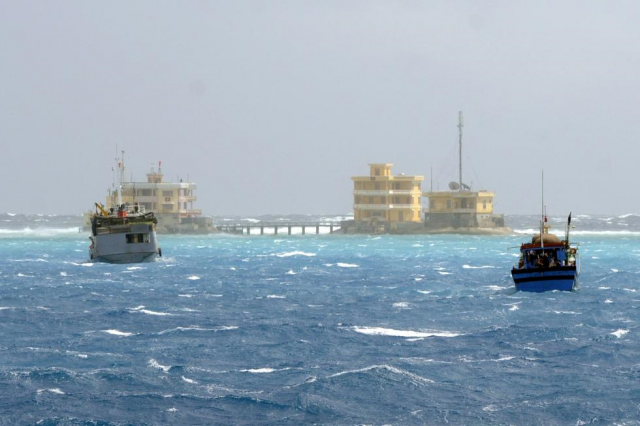
Vietnam has accused a Chinese vessel of firing on one of its fishing boats in disputed waters in the South China Sea, setting it alight
A formal complaint had been lodged with the Chinese embassy in Hanoi, the statement released late on Monday said.
Earlier this month, two Vietnamese fishing boats were chased out of disputed waters by Chinese marine surveillance ships, local reports said. Vietnamese officials have also reported increased patrolling by China in recent months.
But the use of firearms, if confirmed, points to a more forceful approach from Beijing in protecting what it calls China’s sovereign waters.
There has so far been no comment from Beijing on the issue.
In recent years tensions over territorial claims have been rising in the South China Sea, amid a more assertive stance from China.
China claims a U-shaped swathe of the sea that extends well into what UNCLOS (UN Convention on the Law of the Sea) recognizes as the 200-mile-from-shore Exclusive Economic Zones of other claimants.
As well as Vietnam, the Philippines, Brunei, Malaysia and Taiwan have overlapping claims with China.
Last year, the Philippines and China engaged in a lengthy stand-off over another disputed area, the Scarborough shoal, in a spat that left diplomatic ties very strained.
Both the Philippines and Vietnam have sought to raise the issue through the ASEAN regional bloc, but claim Chinese pressure has forced the topic off the agenda.
China has become the world’s second-biggest movie market, after Japan lost the place, underscoring its importance as a key market for Hollywood’s moviemakers.
China’s box office revenues surged 36% to $2.7 billion in 2012, the Motion Picture Association of America said.
The surge came after China eased some restrictions on the number of foreign films allowed to be screened.
In 2012, China agreed to allow an additional 14 Imax or 3D films over and above the quota of 20 foreign films.

China has become the world’s second-biggest movie market in 2012
Beijing also increased the amount of revenue foreign movies are allowed to collect from distribution in China to 25% of overall ticket sales from the earlier limit of 13%.
Industry players said box office sales in China had the potential to grow even more if Beijing eased the restrictions further.
“China is building about ten screens a day” said Chris Dodd, chairman and chief executive of the association.
“There is a voracious appetite for product. Our films have done consistently well there.”
The US movie industry has long complained that the limit fuelled demand for pirated copies of films, which are widely available in China.
China’s new President Xi Jinping has said he will fight for “the great renaissance of the Chinese nation,” in his first speech as head of state.
Closing the annual National People’s Congress, Xi Jinping urged delegates to reject extravagance and fight corruption.
At a news conference later, new Premier Li Keqiang said sustainable economic growth would remain the top priority.
The comments come as the Communist government completed a once-in-a-decade leadership transition.
President Xi Jinping’s address was a patriotic speech urging greater national unity.
Its nationalistic tone will reinforce the view that he will pursue a more assertive foreign policy during his decade in power.
President Xi Jinping issued a warning to China’s military, saying it should improve its ability to “win battles and… protect national sovereignty and security”.
He also stressed that continued economic development was essential, urging the nation to achieve what he called “China’s dream”.

China’s new President Xi Jinping has said he will fight for “the great renaissance of the Chinese nation,” in his first speech as head of state
The same themes were taken up at a rare news conference by new premier Li Keqiang, who has taken over the day-to-day running of the country, succeeding Wen Jiabao.Li Keqiang addressed the growing inequality gap and public anger at corruption, promising to reform the central government, cut “extravagance” and shake-up “vested interests”.
Spending on the government payroll, overseas trips and new offices would be cut while funding for social services would increase, he said.
“A clean government should start with oneself,” Li Keqiang asserted.
Li Keqiang was elected for a five-year term but, like his predecessor, would be expected to spend a decade in office.
On foreign policy, Li Keqiang stressed on the importance of further developing relations with the US, saying that “common interests far outweigh our differences”.
He described as “groundless” US accusations that China was behind recent cyber-attacks on American government agencies and companies.
On Saturday, the People’s Congress approved a number of new ministerial appointments, including Foreign Minister Wang Yi and Finance Minister Lou Jiwei.
The four vice-premiers are Zhang Gaoli, Liu Yandong, Wang Yang and Ma Kai – all veteran Communist Party officials.
China’s Prime Minister Wen Jiabao promised stable growth, anti-corruption efforts and better welfare provision as he opened an annual session of parliament.
Wen Jiabao, whose work report traditionally begins the session, also called for more balanced development in a lengthy speech on both achievements and plans.
This National People’s Congress will see the final stage of the country’s once-in-a-decade leadership change.
Communist Party chief Xi Jinping will become president, replacing Hu Jintao.
The event will be keenly watched to see who secures other top government posts.
This work report – a 29-page consensus document approved by the leadership – is Wen Jiabao’s last. He is expected to be replaced by Li Keqiang as premier later in the parliament session.
The report set a target of 7.5% for economic growth, unchanged from 2012, with an inflation target of 3.5%, and promised to create more than nine million new urban jobs.
PM Wen Jiabao said boosting domestic consumption was key, calling it a “long-term strategy for economic development”.
Noting that dramatic changes to Chinese society had led to a marked increase in social problems, Wen Jiabao said livelihood issues should be addressed.
“We must make ensuring and improving people’s well-being the starting point and goal of all the government’s work, give entire priority to it, and strive to strengthen social development,” the PM said.
He spoke of improving pension provision for the poor and also focused on the adverse effects of development on the environment, saying: “The state of the ecological environment affects the level of the people’s well-being and also posterity and the future of our nation.”
Corruption – the focus of Xi Jinping’s speech after he was formally appointed to lead the Communist Party in November – was also on the agenda, with Wen Jiabao calling for strengthened “political integrity” and better checks on power.
“We should ensure that the powers of policy making, implementation and oversight both constrain each other and function in concert,” he said.

China’s Prime Minister Wen Jiabao promised stable growth, anti-corruption efforts and better welfare provision as he opened an annual session of parliament
State media also reported that defence spending would rise by 10.7% to 720.2 billion yuan ($115.7 billion), a slight drop from the rise of 11.2% in 2012.
China’s military spending has seen several years of double-digit growth – and observers say actual expenditure is believed to be far higher. But the figure falls well short of US military spending.
Nonetheless, increases to China’s military budget are keenly watched both by the US and neighboring countries with whom Beijing is currently engaged in a raft of territorial disputes.
In his speech, Wen Jiabao promised to “resolutely uphold China’s sovereignty, security and territorial integrity”, drawing applause from delegates.
Around 3,000 delegates are attending the Congress, including members of the military, monks, ethnic minority representatives and business leaders. The majority are members of China’s Communist Party.
Rather than debate policy, the role of the delegates is to ratify decisions already made by party officials behind closed doors, making the Congress essentially a rubber stamp parliament.
They are expected to approve plans to restructure several government departments as well as to amend some long-standing policies on the military, the virtual monopoly of some state enterprises and on individual freedoms.
While the exact schedule has not yet been made public, towards the end of the two-week-long event, Xi Jinping will formally become the country’s new president.
Since his party promotion in November, Xi Jinping has been feted in Chinese media as a man of the people who shuns the usual trappings of his position, as well as a staunch nationalist.
He has also been quoted speaking firmly of the need to stamp out corruption at all levels, warning of civil unrest if party privilege is not tackled.
Also set for promotion is Li Keqiang who, as the replacement for Wen Jiabao, is expected to give a press conference at the end of the gathering.
Security has been tightened for the NPC, with police and other security personnel patrolling in increased numbers around the Great Hall of the People.
China’s new leaders are set to inherit a far more vocal public than their predecessors faced, with social media now forcing them to address public concerns more than they ever have before.
On the eve of the Congress, the country’s media reflected high public expectations, reporting demands for action on corruption, education, social care, the environment and inequality.
And after Wen Jiabao’s speech, many internet users posting on Weibo, Chinese versions of Twitter, appeared frustrated that the premier failed to present specific solutions to looming challenges.
Some highlighted particular concerns, such as reform of the household registration system, or water and air pollution, while others spoke out on the wealth gap.
“Whatever (economic) increase there has been has only benefitted corrupt officials; ordinary people are still poor,” wrote one internet user on Tencent Weibo.
Wen Jiabao’s report on 2013 policy targets:
- Chinese economy to grow by 7.5% in 2013, with inflation kept to 3.5%
- More than 9 million jobs to be created in towns and cities, while urban unemployment to be kept below 4.6%
- Boost consumer spending to make economy less dependent on exports
- Implement a “proactive fiscal policy” giving priority to education, healthcare and social security
- Complete 4.7 million subsidized urban homes and begin construction on another 6.3 million
[youtube x-U70pxD93M]
Cen Yingyuan from China hasn’t cut her hair for the past 11 years and her locks now hang at 6 ft 7 in long.
In comparison to her long hair, 44-year-old Cen Yingyuan only stands 5 ft feet in height, meaning that unless she ties up her tresses her hair trails on the floor as she walks.
Cen Yingyuan, who lives in Guigang, in the Guangxi Province, says: “I have saved the hair for 11 years, and I am quite addicted to it.”
Unsurprising every time Cen Yingyuan goes out she and her hair attract a lot of attention from passers by, but she is proud of her unusual “do”.
Cen Yingyuan treasures her hair so much she even collects any strands that drop out.
“Starting from 2005 I started to collect the dropped ones when combing. Usually I can collect around 50 g a year.”
Cen Yingyuan said many people have offered to buy her hair, and the highest amount she has ever been offered was 20,000 Yuan ($32,000).
She takes good care of her hair and is proud that there is no grey.
“If the hair started to turn grey, I’ll dye it all white, making myself have another look.”

Cen Yingyuan from China hasn’t cut her hair for the past 11 years and her locks now hang at 6 ft 7 in long
However, Cen Yingyuan’s long hair does come with disadvantages as it takes her over an hour to wash and then half a day to dry.
She is unable to wash it in a shower or bath due to its extreme length and is forced to bend over a bucket.
Cen Yingyuan washes her hair every four days and her secret to keeping it shiny is to use a bottle of beer.
And Cen Yingyuan is not alone in being obsessed with growing her hair.
The Red Yao women, a minority ethnic group from Huangluo Yao Village in China, have an average hair length of 5.5 feet with the longest locks measure more than 6.8 feet.
Incredibly, the women cut their hair only once in their lives, at 16 years old, before they start their search for a husband, as they believe a woman long hair brings longevity, wealth and good fortune
China’s environment ministry appears to admit the existence of so-called “cancer villages” after years of public speculation about the impact of pollution in certain areas.
For years campaigners have said cancer rates in some villages near factories and polluted waterways has shot up.
But the term “cancer village” has no technical definition and the ministry’s report did not elaborate on it.
There have been many calls for China to be more transparent on pollution.
The latest report from the environment ministry is entitled “Guard against and control risks presented by chemicals to the environment during the 12th Five-Year period (2011-2015)”.
It says that the widespread production and consumption of harmful chemicals forbidden in many developed nations are still found in China.
“The toxic chemicals have caused many environmental emergencies linked to water and air pollution,” it said.
The report goes on to acknowledge that such chemicals could pose a long-term risk to human health, making a direct link to the so-called “cancer villages”.
“There are even some serious cases of health and social problems like the emergence of cancer villages in individual regions,” it said.

China’s environment ministry appears to admit the existence of so-called “cancer villages” after years of public speculation about the impact of pollution in certain areas
China has experienced rapid development, stories about so-called cancer villages have become more frequent.
And China has witnessed growing public anger over air pollution and industrial waste caused by industrial development.
Media coverage of conditions in these so-called “cancer villages” has been widespread. In 2009, one Chinese journalist published a map identifying dozens of apparently affected villages.
In 2007, one scientist found high levels of poisonous heavy metals in the water and believed there was a direct connection between incidences of cancer and mining in the area.
Until now, there has been little comment from the government on such allegations.
Environmental lawyer Wang Canfa, who runs a pollution aid centre in Beijing, told the AFP news agency that it was the first time the “cancer village” phrase had appeared in a ministry document.
Last month – Beijing – and several other cities – were blanketed in smog that soared past levels considered hazardous by the World Health Organization.
The choking pollution provoked a public outcry and led to a highly charged debate about the costs of the country’s rapid economic development.
[youtube -rj9Wx_jg40]
Sarah Jessica Parker is almost unrecognizable on her latest magazine cover for Harper’s Bazaar China.
Sarah Jessica Parker, 47, appears to have been airbrushed within an inch of her life, leaving her looking like an entirely different person.
The resulting image is rather startling as Sarah Jessica Parker’s piercing blue eyes stare intensely into the camera.
With her dark blonde tresses blown into big and bouncy curls, the actress poses in a colorful pretty printed dress which features a black lace top and matching bra underneath.
Sarah Jessica Parker accessorizes with ornate drop earrings and a delicate ring, but all eyes are on the star’s fierce-looking face.

Sarah Jessica Parker is almost unrecognizable on her latest magazine cover for Harper’s Bazaar China
 Prev1...678Next
Prev1...678Next  Page 7 of 8
Page 7 of 8

























